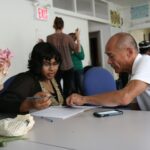“People who fly into a rage always make a bad landing.”
Will Rogers, American actor and humorous social commentator
Will Rogers believed in a politics of civility, using humor to critique without malice, fostering an understanding of shared values among Americans.
Many people believe his approach remains relevant even in today’s polarized political climate.
Here are a few more of his provocative quotes to ponder over the coming days:
“When you find yourself in a hole, quit digging.”
“The quickest way to double your money is to fold it and put it back in your pocket.”
“Never miss a good chance to shut up.”
“Even if you are on the right track, you’ll get run over if you just sit there.”
EXERCISE:
Which of Roger’s quotes strikes the strongest chord in you?
How can you apply its wit and wisdom to better your life and your world?














